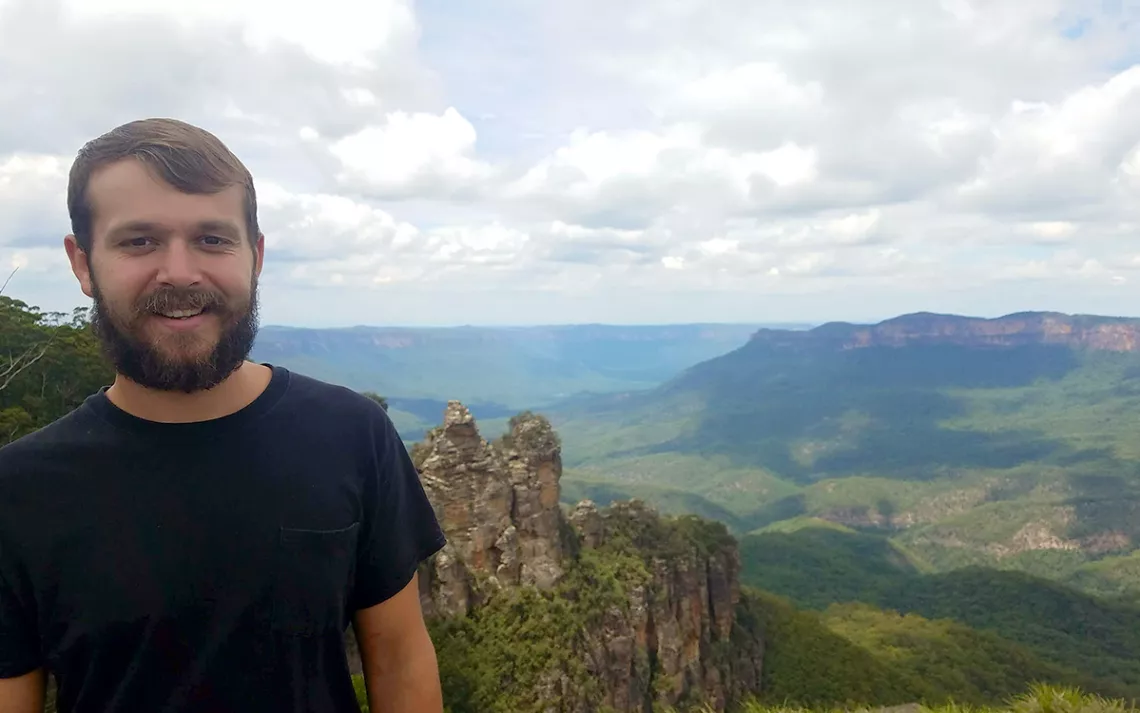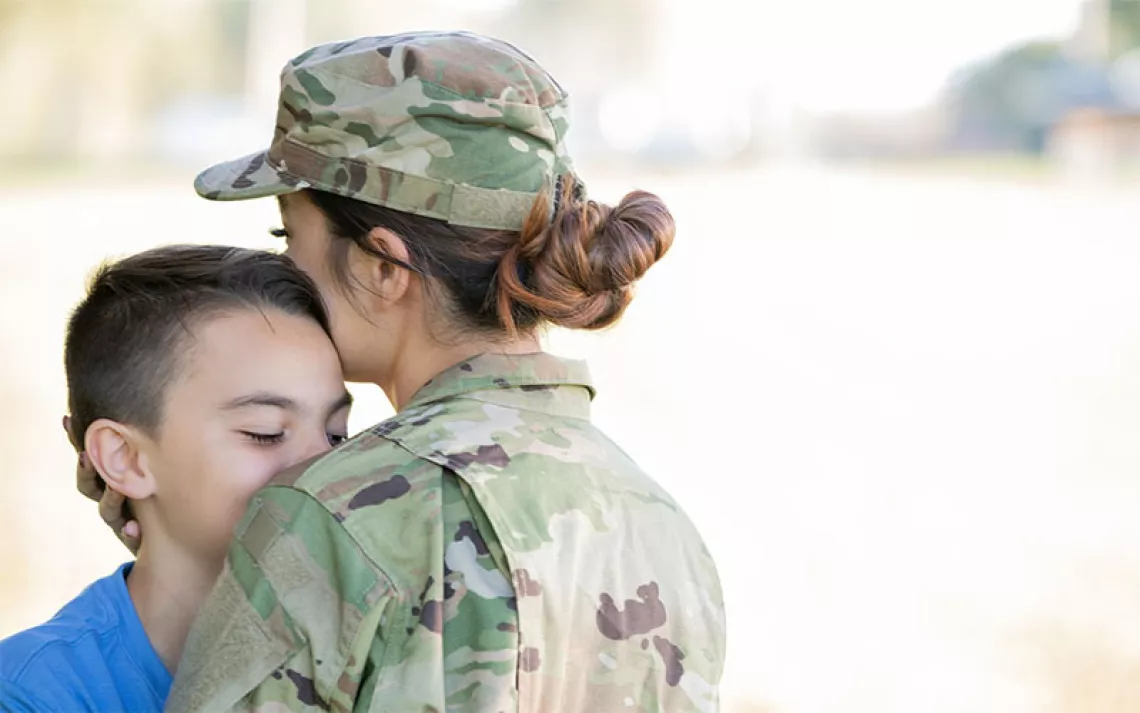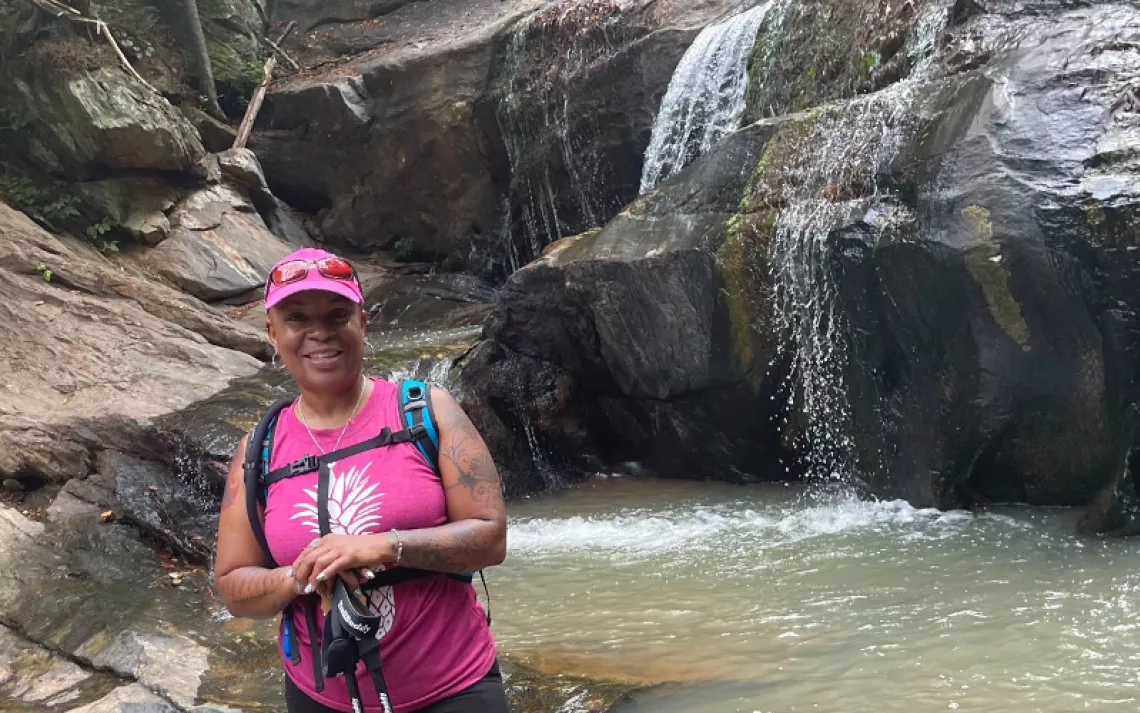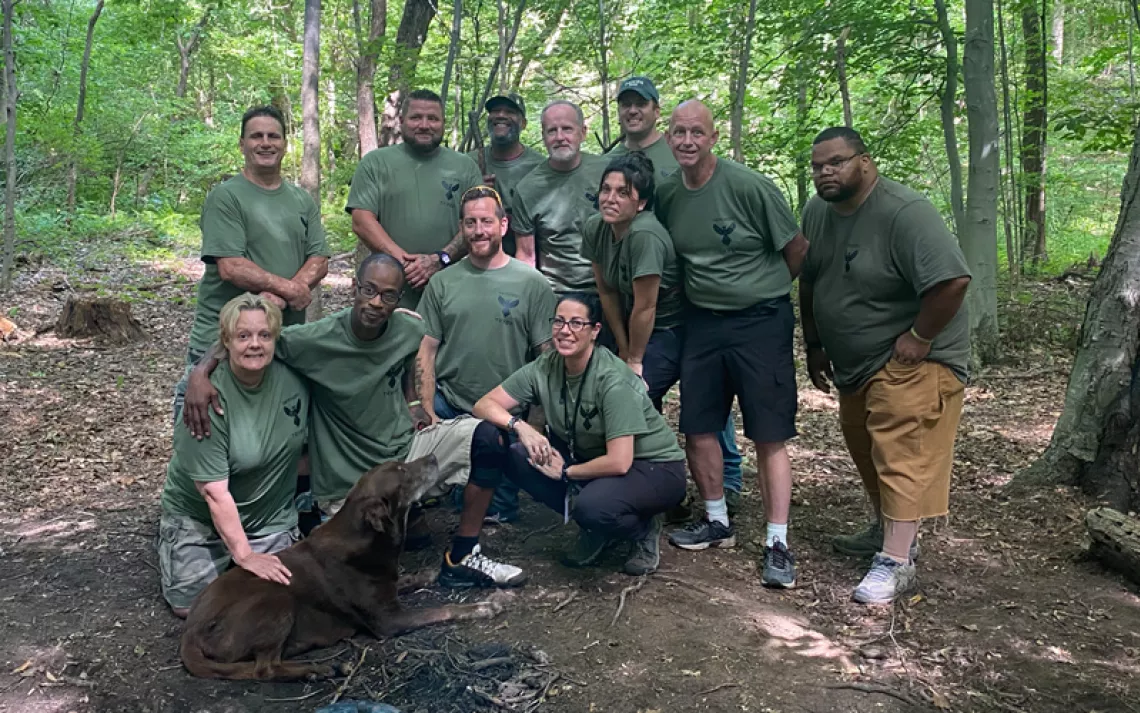On Veterans Day, a Marine Veteran Reflects on the Benefits of Time Outdoors
It turns out that nature really *is* healing

Brennan Kelly in the Blue Mountains Range, New South Wales, Australia, in February 2019. | Photo courtesy of Brennan Kelly
When I left the Marine Corps in 2018 after serving for six years, I was unsure of what career path to take. As I considered my options, I realized that I wasn’t ready to join the workforce or go back to school. Instead, I chose to take some time to travel. I ended up living and working in Australia, where I found plenty of opportunities to hike the bush, swim in the ocean, and go camping during the weekends.
In Australia, I spent most of my time outdoors. There I saw the local wildlife, swam in waterfalls, snorkeled in the Great Barrier Reef, and explored the Australian countryside. Although I often crossed paths with other people, I was traveling alone, and that gave me the space to think about what I wanted to do next with my life.
When I returned to the United States, I chose to pursue my education, and eventually found myself working for the Sierra Club’s Military Outdoors program. It was then that I realized how time outdoors had helped me transition out of the Marine Corps. Hiking, snorkeling, kayaking, and biking allowed me to step outside of my everyday worries and consider my next steps with a clear head. Experiencing Australia’s natural wonders allowed me to decompress from the stresses of active duty and gave me the space that I needed to figure out what I wanted to do with myself.
I know I'm not alone among veterans in finding solace in the outdoors. The end of active duty can be a challenging transitional period for many service members. Some create a smoother transition by enlisting in the reserves or by connecting with veteran organizations in their communities. Many others like myself, however, ease into their transition by spending healing time outdoors and seeking outdoor adventure.
But transitioning service members don’t need to travel to another continent to get the benefits of the outdoors; that peace can be found at local state parks, rivers, trails, or even a shaded bench in a city greenspace. The benefits of time in nature have been well documented. Researchers have found decreases in stress, anxiety, and depression symptoms in participants immediately following a nature-based intervention. It turns out that nature really is healing.
Across the United States, local and national groups are working to tap into that healing power by connecting veterans with nature. The Sierra Club’s local chapters regularly put together events to educate community members about local outdoor-recreation opportunities, along with veteran organizations like Another Summit and the Outdoor Rx Coalition. Opportunities exist for individuals to participate in these outings or to receive training to lead and create events.
Despite the growing number of groups dedicated to connecting veterans to nature experiences, there are still barriers that limit veterans’ accessibility to the outdoors. These barriers can come in the form of trails that are inaccessible to disabled veterans, park admission fees, and a lack of public transportation. To eliminate these barriers, we need policy change at all levels—local, state, and federal. In New York State, the Outdoor Rx Coalition is leading the way by redirecting public transportation to trailheads and lobbying to eliminate state park admission fees in the state. Just this week, the Interior Department announced that veterans and members of Gold Star families will receive free lifetime passes to national parks and other federal public lands.
Whether it be by educating a neighbor about local trails, joining an advocacy group, or volunteering in your community, this Veterans Day I encourage anyone with an inclination toward supporting outdoor causes to get involved in efforts to improve access to the outdoors – especially for veterans.
While there is no single solution to eliminating the barriers that make it difficult for veterans to get outside, even the smallest contribution can make a large difference. The ultimate goal is helping to ensure that as many people as possible gain access to the outdoors to experience the healing powers of time in nature. It worked for me and my transition from military to civilian life – it can work for other veterans too.
 The Magazine of The Sierra Club
The Magazine of The Sierra Club



